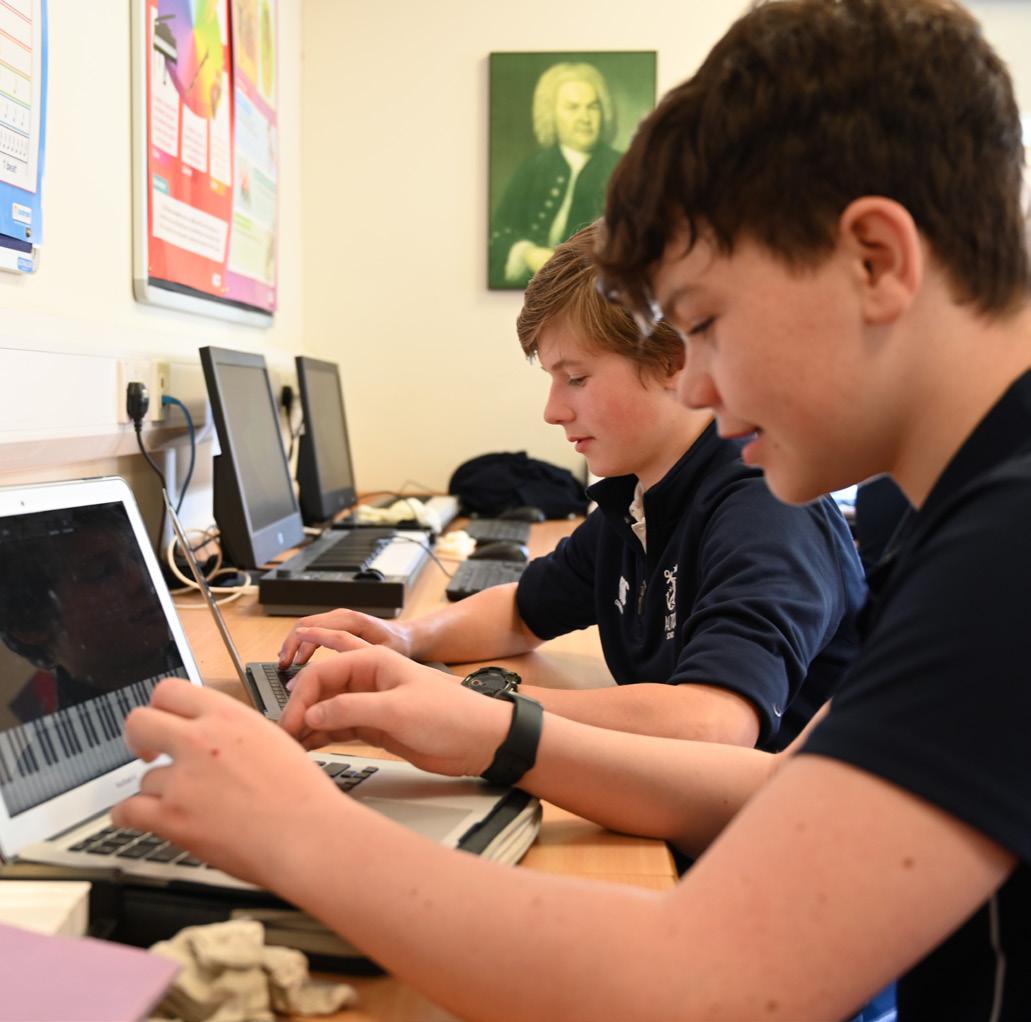
2 minute read
Computers & Internet
Alton School recognises the importance of ICT in education. Our ICT network is available for students to use for their studies both in and out of lesson times.
Alton School has an ‘Acceptable Use’ policy, which is available on our website. All students and parents are required to sign up to this policy before students can receive their username and password.
Advertisement
The purpose of the policy is to ensure that our pupils use their laptops, the internet, email and other technologies available at School in a safe and secure way. It also seeks to ensure that pupils are not subject to identity theft and therefore fraud and that we help our pupils to avoid cyber-bullying and just as importantly, becoming a victim of abuse. It also provides a clear set of dos and don’ts. Some of these are considered offences under the Computer Misuse Act 1990 and will be taken very seriously by the School.
E-Safety
The School is committed to ensuring all pupils have a sound awareness of the environment in which we live. Our aim is to help one another navigate the digital world, being mindful of the dangers and making the most of the positive aspects.
We deliver PSHMEE lessons on the over-use of social media and invite speakers in to talk to us about a range of issues including the dangers of online-grooming and sexting.
Do
» Use printers sparingly for educational purposes only
» If you come across any inappropriate website or content whilst using the ICT equipment, report it to a member of the ICT department immediately
» Only access suitable material – the Internet is not to be used to download, send, print, display or transmit material that would cause offence or break the law
» Be polite - never send or encourage others to send abusive messages
» Use appropriate language - remember that you are a representative of the School on a global public system. What you say and do can be viewed by others. Never swear, use vulgarities or any other inappropriate language
» Consider the file size of an attachment, files exceeding 50MByte in size are generally considered to be large and you should consider using other methods to transfer such files
» Inform the ICT department immediately if you forget your password
» If you believe that someone else may have discovered your password, then change it immediately and inform a member of the ICT department
» You should report any security concerns immediately to a member of staff
DON’T
» Change or remove software
» Undertake any configuration changes without expresss authorisation
» Create or upload computer viruses
» Cause deliberate damage to computer hardware
» Use printers for non-education or offensive material
» Access internet chat sites. Remember you could be placing yourself at risk
» Never give or enter your personal information on a website, especially your home address, your mobile number or passwords
» Deliberately delete files
» Access online gaming sites. Remember that your use of the Internet is for educational purposes only
» Use the Internet to order goods or services from online, e-commerce or auction sites
» Subscribe the school to any newsletter, catalogue or other form of correspondence via the Internet
» Reveal any personal information about yourself or anyone else, especially home addresses, personal telephone numbers, usernames or passwords. Remember that electronic mail is not guaranteed to be private
» Download or open file attachments unless you are certain of both their content and origin. File attachments may contain viruses that may cause loss of data or damage to the School network
» Reveal your password to anyone
» Attempt to access files or programmes to which you have not been granted access. Attempting to bypass security barriers may breach data protection regulations and such attempts will be considered as hack attacks





